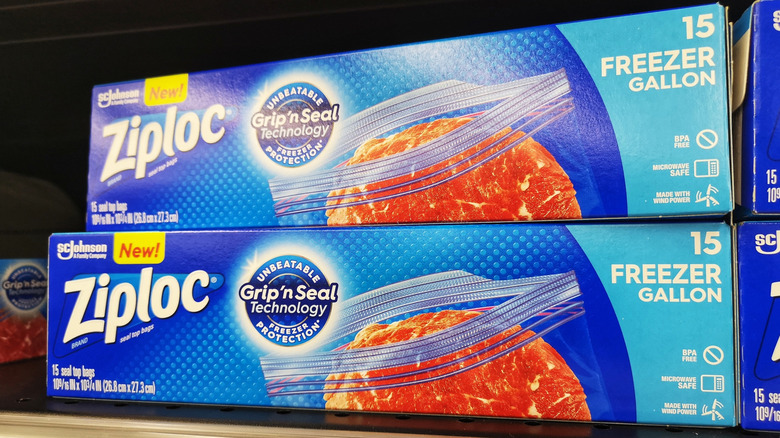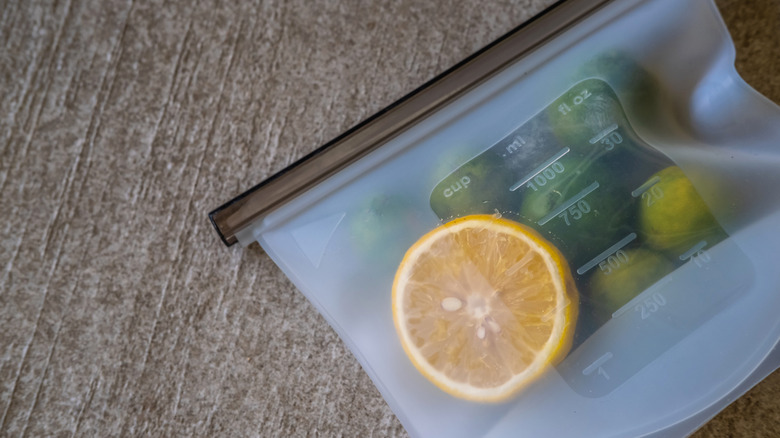Here's What Ziploc Says About Reusing Its Plastic Baggies
Ziploc bags can be a home cook's best friend. From stashing snacks to maximizing freezer storage space and even deboning a rotisserie chicken in seconds, there's a litany of uses for these handy resealable bags. However, it's no secret that Ziploc bags are made from thin, single-use plastics that often end up in landfills (and eventually our oceans and waterways). Thankfully, for those looking to reduce their plastic use in the kitchen, these convenient storage bags can actually be reused time and time again.
According to the Ziploc website, storage bags can be reused after being hand-washed and left to dry. However, important to note is that Ziploc advises against reusing bags that have been used to store raw meat, fish, eggs, or any foods that can trigger an allergic reaction. To wash your bags, simply fill them with warm water and a splash of dish soap, then seal and swish the soapy water around. After thoroughly rinsing the bags, leave them to dry completely — just don't flip them inside out, as this can tear the seams. When cleaned properly, Ziploc bags can be reused up to 10 times before being recycled.
More reusable alternatives to single-use kitchen plastics
While Ziploc bags are technically recyclable, there is, unfortunately, a catch: Not all recycling facilities accept low-density polyethylene, the type of plastic used in making these storage bags. If you're looking to avoid single-use plastics in the kitchen altogether, try shopping for reusable silicone storage bags, which are typically dishwasher-safe and designed to last. In fact, Ziploc even sells its own line of durable silicone pouches that can be used to reheat leftovers in the oven straight from the fridge or freezer. There are also many brands that sell sandwich and storage bags made from plant-based plastics, which are compostable and will biodegrade after you toss them.
Another fantastic alternative to plastic bags are airtight glass containers, which are the best for preventing freezer-burnt food. Although these containers come in many shapes and sizes, it's best to purchase a set with sealable lids and thick walls that are less prone to shattering under cold conditions. For those also hoping to ditch their plastic-wrap habit, consider investing in a set of reusable beeswax wraps. Often sold in a number of fun colors and prints, these wax-treated cotton cloths are a great way to wrap up sandwiches, produce, and even homemade bread to keep them fresh. Unlike plastic wrap that gets tossed after each use, beeswax wraps can be reused for up to two years with proper care.


